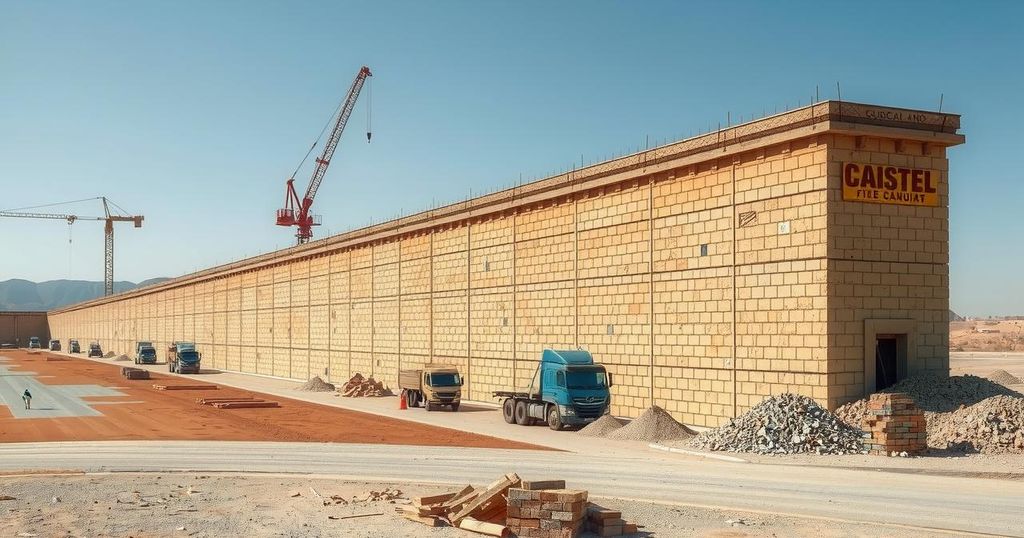Turkey has started building an 8.5-kilometer wall on its Greek border, as announced by Edirne’s Governor Yunus Sezer. This construction is part of the first physical security measures for the western border. The initiative follows previous road constructions and aims to reinforce border security amid increasing migration pressures.
Turkey has commenced the construction of an 8.5-kilometer wall along its border with Greece, marking the initiation of significant “physical security measures” at this western border. Yunus Sezer, the Governor of Edirne province, announced this development during a press conference held on March 4, where he addressed various issues related to security and public order.
During his statement, Governor Sezer indicated that work on the wall had begun at the Greek frontier and would progress based on future circumstances and available funding. He estimated that the wall would measure approximately 8.5 kilometers. This initiative follows last September’s completion of 325 kilometers of roads along the border by local authorities.
Furthermore, Governor Sezer noted ongoing efforts to enhance border security, which include the installation of electro-optical towers and additional measures supported by Turkey’s Interior and Defense Ministries. The border “reinforcement” project aims to erect physical barriers in areas that previously only accommodated patrol routes.
Greece serves as a critical entry point into the European Union for many refugees and migrants fleeing conflict and hardship from regions such as the Middle East, Asia, and Africa. Reports have accused Greece of illegal “pushbacks,” where aid organizations claim that migrants are forcibly removed from its borders. In light of recent earthquakes in Turkey, Greece has heightened its border controls anticipating an influx of displaced individuals, as highlighted by the Guardian’s reporting.
In summary, Turkey’s construction of an 8.5-kilometer wall on the Greek border represents a notable step in enhancing border security. Governor Yunus Sezer highlighted the importance of these measures amid concerns over migrant flows. Enhanced infrastructure and support from government ministries signal a strengthened commitment to border control, reflecting broader geopolitical dynamics involving migration in the region.
Original Source: www.duvarenglish.com






